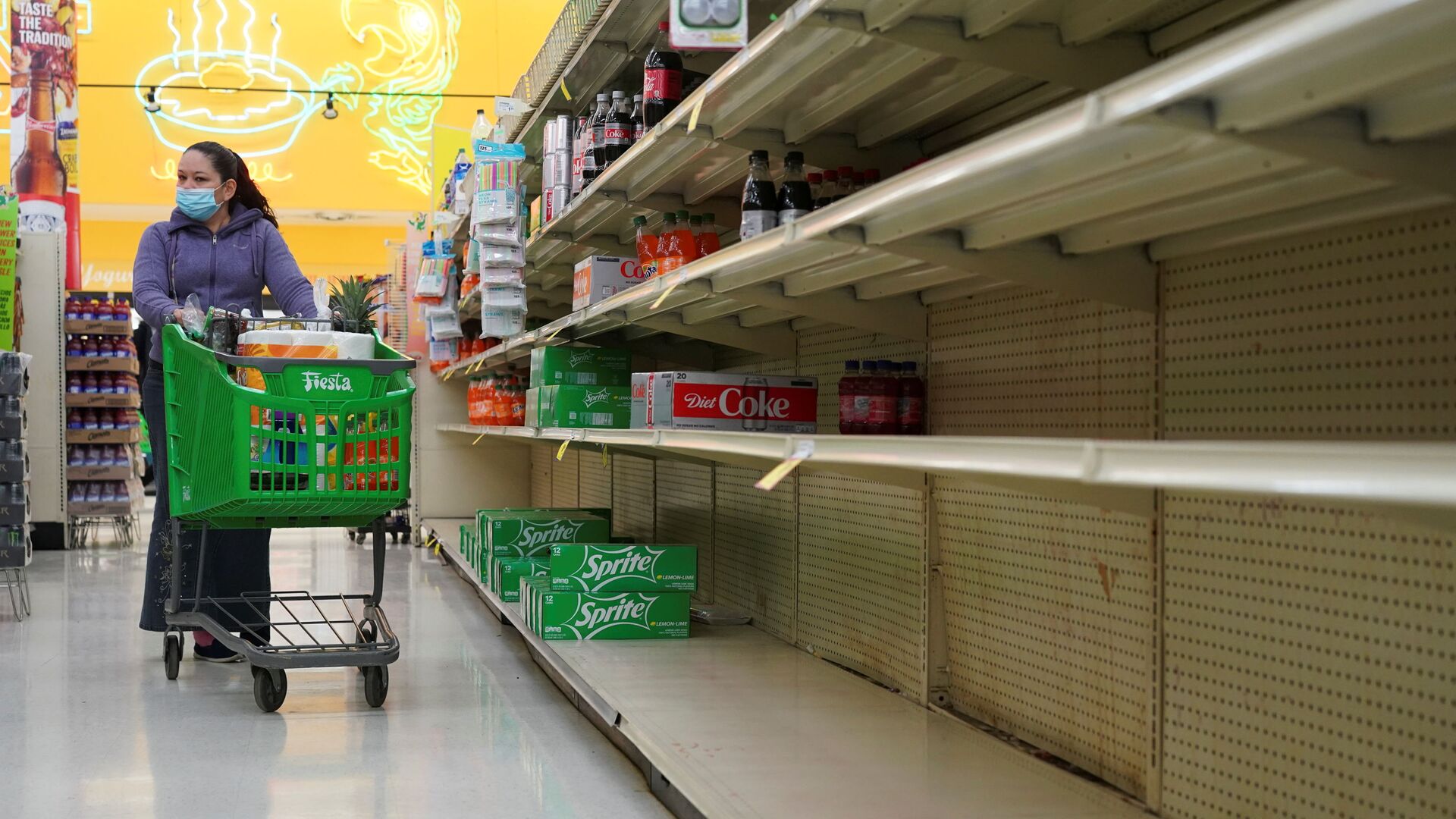Delta Outbreak Blamed for US’ Third-Quarter Economic Slowdown, Worst of 2021
23:02 GMT 28.10.2021 (Updated: 11:21 GMT 05.03.2023)

© REUTERS / GO NAKAMURA
Subscribe
A supply chain crisis has rippled through the US economy, helping to drive prices up as container ports struggle with long wait times for dozens of massive cargo ships and a shortage of tens of thousands of truck drivers.
A new report from the US Department of Commerce on Thursday highlighted how a number of trends have heavily impacted the US economy, including backups in the global supply chain, higher commodity prices and an ongoing labor shortage.
The third quarter gross domestic product (GDP) report published by the Bureau of Economic Analysis revealed that the United States’ annualized economic growth since July has been just 2% - the slowest quarter since early 2020, when the COVID-19 pandemic began and the most extensive social lockdowns were implemented.
This contrasts sharply with the previous quarter’s growth, which clocked in at 6.7% and corresponds to the boom that took place this past spring, as mass vaccination and low Covid cases combined to see most of the US economy begin to reopen.
The third quarter was totally dominated by the mass outbreak driven by the Delta variant of SARS-CoV-2, an ultra-transmissive form of the virus that causes COVID-19. The time period began in July, as new Covid cases began to grow, and ended at the end of September, just after the peak of the outbreak, but well before new cases had reached the low point the quarter started at.
Big Delta spike crushed Q3 GDP; what might this mean for Q4 + 2022?
— Barry Ritholtz (@ritholtz) October 28, 2021
What if things go right? https://t.co/OTEL2O4Vm2 pic.twitter.com/NEoKQvbgVC
“Ultimately, this is a speed bump,” Constance Hunter, chief economist for accounting giant KPMG, told the Washington Post. “The key thing is, of course, to break this down based on supply factors versus demand factors.”
Delta helped keep millions out of work, even as the Biden administration allowed pandemic relief programs like an added federal unemployment benefit to expire, which opponents claimed would help end the labor shortage by forcing people back to work.
In turn, new travel restrictions hurt travel industries like airlines and hotels, and retail spending also declined as unemployed or underemployed Americans struggled to pay bills.
However, it wasn’t all Delta: the automobile industry, a staple of America’s industrial sector, suffered due to an ongoing global shortage of semiconductors necessary for their computer systems. Most of the world’s semiconductors are forged in Taiwan and China, the latter of which has enjoyed an advantage not due to proximity, but because its planned economy placed semiconductor orders for 2021 last year.
This year has also seen the fastest inflation in decades, driven largely by higher commodity prices across the board, from cars to furniture and fuel. The price index for gross domestic purchases increased by 5.4% in the third quarter, compared with 5.8% in the quarter prior, the BEA report said.
Treasury Secretary Janet Yellen, who once chaired the Federal Reserve, said on Thursday that if Congress passes the massive infrastructure bill it has been debating for months - presently valued at $1.75 trillion over the next decade - it would go a long way toward fighting inflation and repairing the economy.
"We haven't seen an investment like that in 100 years in the United States," Yellen told CBS while in Rome. "All of this will help households find their basic needs much easier to meet, health care, child care, the expenses of living, elder care."
She said that the bill, which includes a national childcare program and paid family leave, would “spur economic growth in our ability to supply goods and services. It will make it much easier for people to participate in the workforce by providing child care and support for people who work, and more supply also, is something that tends to push down prices throughout the economy."
